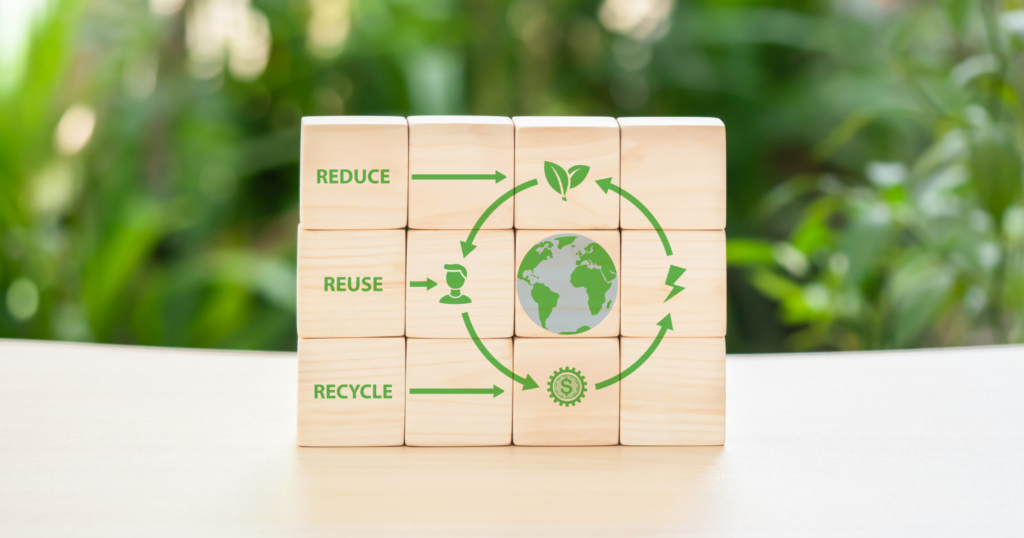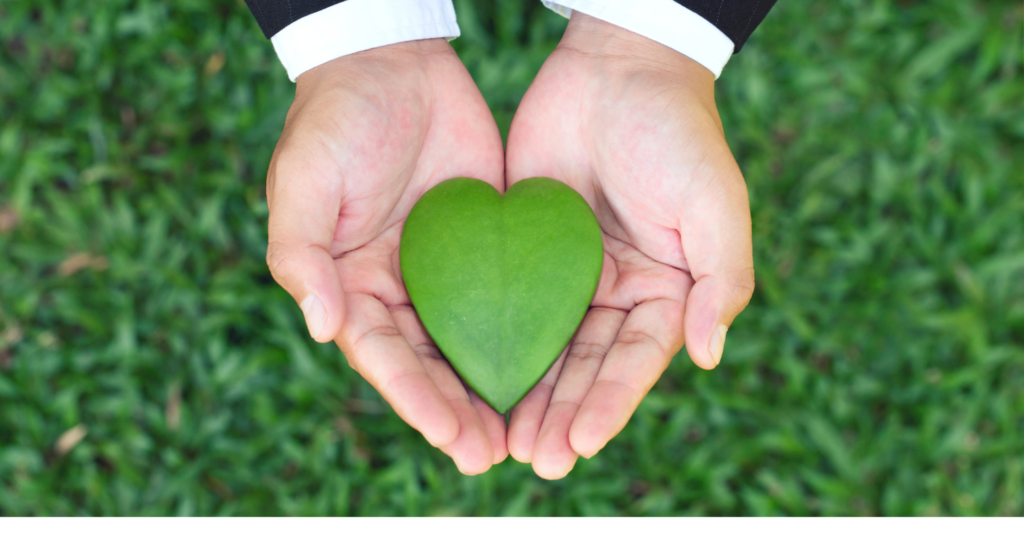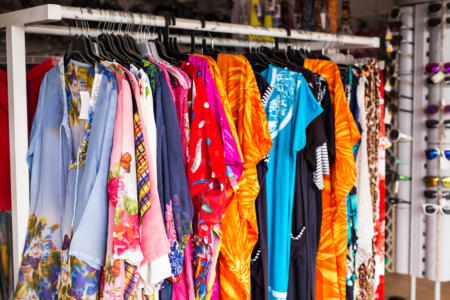In a world striving towards sustainable development, it is vital to recognize the impact of individual actions on the 3 pillars of sustainability economic, social, and environmental. The World Commission on Environment and Development, or the Brundtland Commission, defined sustainable development as meeting “the needs of the present without compromising the ability of future generations to meet their own needs.”
This concept has become increasingly relevant as we approach 2030, the United Nations’ Sustainable Development Goals (SDGs) deadline. As stakeholders, we must consider the metric of Environmental, Social, and Governance (ESG) in our daily lives, from reducing carbon emissions to promoting social justice. A triple bottom line approach – balancing economic, social, and environmental impact – is championed by the Harvard Business School.
By building sustainability into our everyday routine, we can contribute towards the common future of an open-access world. This article will provide simple ways to incorporate sustainable practices into your daily simple life and mindset for a brighter future beyond 2024. Jump to content to discover how you can make a meaningful difference.
What is Sustainability?

So, what exactly is sustainability? You’ve likely heard the term thrown around, but it’s time to understand its depth truly. Sustainability, at its core, is a commitment to use resources in a way that meets our needs without compromising the ability of future generations to meet their needs. It’s the ultimate balancing act, requiring careful natural resource management and adopting sustainable practices.
Think of sustainability as a three-legged stool, each leg representing environmental, economic, and social dimensions. If one leg is shorter, the stool wobbles. The same applies to sustainability; it’s about creating equilibrium between these areas.
Sustainable development, then, is the process of achieving this balance. It involves reducing our environmental impact, conserving resources, and harnessing renewable energy. It’s not just about ‘going green’, it’s about improving sustainability in all aspects of life.
But here’s the catch – sustainability isn’t a one-time task. It’s a continual journey. It’s about making choices daily that reduce your carbon footprint and promote sustainability. So, start today. Understand the concept of sustainable development, adopt sustainable practices, and play your part in conserving our planet. Your choices matter.
What is the Importance of Sustainability in Our Everyday Life?

Having grasped the concept of sustainability, understanding how significant it is in our everyday lives is is pivotal. Essentially, sustainability refers to using resources responsibly to ensure a sustainable future.
Think about your environmental footprint. Every action you take, every item you buy, and every waste you produce impacts our planet. By incorporating sustainability efforts into your everyday life, you’re directly contributing to sustainability goals worldwide.
Why is sustainability important? Well, it’s simple. Sustainability means ensuring our children and their children can enjoy the same quality of life we’ve today. It’s about preserving our planet, our home, for future generations. Achieving this requires conscious actions.
Consider the products you use, the food you eat, the clothes you wear. Are they sustainably produced? Do they leave a minimal environmental footprint? The answer to these questions lies in your everyday choices. By making sustainability a part of your everyday life, you’re not just doing your part – you’re making a difference.
And that, dear reader, is the true essence of sustainability. So, let’s embrace it, for a sustainable future is a brighter one.
Simple Ways to Build Sustainability into Your Life
You’re probably wondering, ‘How can I make my daily life more sustainable?’ Well, it’s simpler than you think. Let’s explore some practical steps you can take, from reducing energy usage and eco-friendly commuting to mindful shopping and waste reduction.
1. Reduce Energy Usage
One effortless step towards a more sustainable lifestyle is slashing your energy usage. Two effective strategies for achieving this are switching to LED bulbs and unplugging devices when they’re not in use.
LEDs last longer than traditional bulbs and significantly reduce energy usage. This simple switch is a practical application of sustainability practices in everyday life.
Moreover, unplugging appliances when you’re not using them curbs unnecessary power consumption. This habit promotes environmental sustainability and contributes to sustainable development by reducing greenhouse gas emissions.
Recognizing such environmental issues and taking action is fundamental for successful resource management. Integrating these practices into your routine significantly contributes to sustainability and actively addresses key environmental concerns.
2. Eco-Friendly Commuting
In addition to energy saving habits at home, integrating eco-friendly commuting options into your daily routine can significantly enhance your contribution to environmental sustainability. This can include using public transport, carpooling, or biking. By doing so, you are not only saving on fuel costs but also reducing emission levels, which is a key factor in the impact of climate change.
Think about sustainability in business terms. As sustainable business practices are key to long-term success, so are sustainable habits in our daily lives. By altering your commute, you support sustainable development goals, and the social impact is tremendous. It’s like becoming one of the pillars of sustainability yourself.
3. Sustainable Shopping
Just as you can alter your commute for the environment, your shopping habits too hold power in building a more sustainable future. By choosing products with minimal packaging, you’re fostering a circular economy and promoting sustainability. This subtle shift in buying behavior is a key component of any personal sustainability strategy.
Additionally, supporting eco-friendly brands is another proactive way to make an impact. These brands often have a sustainable business strategy deeply ingrained, taking environmental and social factors into account in their operations. By choosing such brands, you’re backing their sustainability initiatives and helping to drive the demand for responsible business practices.
Sustainable shopping isn’t just a trend, it’s a lifestyle choice that can help shape our world for the better.
4. Mindful Water Use
Turning off that dripping faucet or swapping out your old showerhead for a water-saving model can impact your water bill and our planet’s water resources. If you’re keen on defining sustainability in your daily life, this simple task can lead you to contribute significantly to environmental and economic sustainability. By learning about sustainability and applying it, you’re saving money and creating potential sustainability jobs in the long run.
Investing in sustainability in higher education can educate you further about the importance of fixing leaks and using water-saving fixtures. This way, you’re practicing social sustainability while promoting corporate sustainability.
5. Waste Reduction
You’d be amazed at how much you can do for the planet by simply composting organic waste and making a habit of recycling whenever possible. It’s a straightforward way to confront sustainability challenges, reduce waste, and combat resource degradation. Composting organic waste returns natural nutrients to the soil, reducing reliance on artificial fertilizers. It’s a small yet potent way to build sustainability into your everyday life.
When you recycle, you’re not just reducing waste. You’re saving energy, conserving natural resources, and reducing pollution. It’s one of the simplest ways to build sustainability and something you can do daily.
6. Support Local Produce
Let’s venture into another practical way to infuse sustainability into your lifestyle – shopping for local produce at your neighborhood farmers’ markets. Pillars of sustainability, such as supporting local produce, directly contribute to the well-being of future generations.
When you shop at local farmers’ markets, not only are you getting fresh, nutritious food, but you’re also helping to reduce your carbon footprint. How? You’re cutting down on the miles your food travels from farm to plate, meaning fewer greenhouse gases are released into our atmosphere.
Plus, you’re keeping money within your community, boosting its economic health. As a sustainability synonym, think ‘future-friendly.’ Make it a habit to bolster your local economy, lessen your carbon footprint, and create a more sustainable future.
7. Eco-Friendly Home Upgrades
In the same spirit of creating a sustainable future, another effective tactic is to make eco-friendly home upgrades, such as investing in energy-efficient appliances and ensuring proper insulation. These simple steps align with your sustainability objectives, reducing the environmental impact and fostering respect for the natural environment.
Upgrading to energy-efficient appliances may seem daunting, but it’s a worthwhile investment. They cut down on energy use and reduce your utility bills.
Similarly, proper insulation is a game-changer. It prevents heat loss, reducing reliance on heating and cooling systems and further minimizing land use change.
By understanding these concepts of environmental sustainability and making conscious choices, you’re not just upgrading your home but also contributing to a healthier, more sustainable world.
8. Raise Awareness
Regarding sustainability, it’s not just about what you can do personally – it’s also about what you can do to educate others and inspire them to make eco-conscious decisions.
The idea of sustainability is often met with resistance or confusion, but by raising awareness about the importance of sustainability, you can help others understand its benefits.
Talk about the three pillars of sustainability: economic, social, and environmental.
Discuss the challenges and opportunities that come with integrating sustainability into everyday life.
Encourage others to live sustainably, highlighting how small changes can make a big impact.
Frequently Asked Questions
How Can Businesses Incorporate Sustainability Into Their Practices?
You can incorporate sustainability into your business by reducing waste, using energy-efficient equipment, sourcing locally, and implementing recycling programs. It’s about making conscious, eco-friendly choices in all aspects of your operations.
What Are Some Sustainable Fashion Brands to Consider?
You’re keen on sustainable fashion? That’s excellent! Brands like Patagonia, Eileen Fisher, and Stella McCartney lead the way in eco-friendly designs. They’re committed to sustainability, making your wardrobe a testament to your environmental consciousness.
Are There Any Sustainability-Focused Smartphone Apps That Can Help Me Make Greener Choices?
Absolutely! Apps like Oroeco, Good On You, and JouleBug can guide you towards greener choices. They’ll help you understand your carbon footprint and suggest eco-friendly alternatives for your daily activities and shopping habits.
How Can Schools and Universities Promote Sustainability Among Students?
Schools and universities can foster sustainability by integrating it into their curriculum. You’ll see it promoted through green initiatives, recycling programs, and by encouraging active participation in eco-friendly activities within the campus community.
What Is the Global Impact of Not Leading a Sustainable Lifestyle?
If you’re not leading a sustainable lifestyle, your actions contribute to global issues like climate change, deforestation, and pollution. It’s not just about you, it affects the entire planet and future generations.
Conclusion
Incorporating sustainability into your everyday life isn’t as daunting as it seems. Small, mindful changes can make a significant impact. So, start composting, cycle more, or switch to renewables. Remember, sustainability isn’t just about saving the planet; it’s about creating a healthier, more balanced life for you. Let’s make every day Earth Day and shape a greener future together. Every little bit counts and your actions truly do make a difference.








